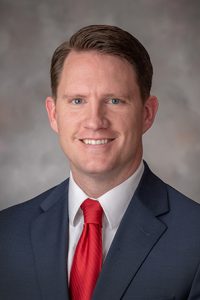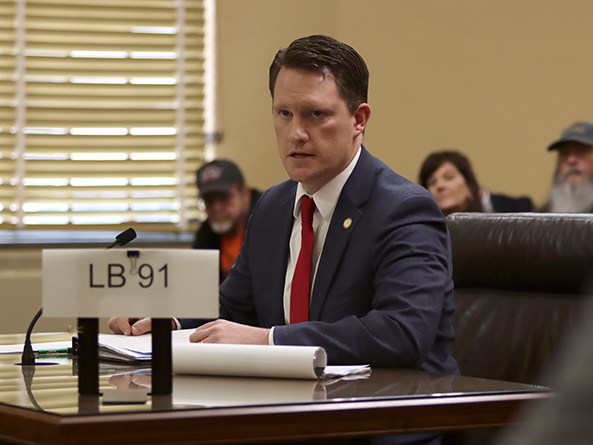Bill would repeal helmet law for certain motorcyclists
The Transportation and Telecommunications Committee heard testimony Jan. 24 on a bill that would alter Nebraska’s motorcycle helmet mandate.

Current state law requires that an individual wear a helmet while riding a motorcycle or moped. LB91, introduced by Blair Sen. Ben Hansen no longer would require an individual age 21 and older who has completed a certified motorcycle safety course to wear a helmet, provided the rider uses protective eye equipment.
The choice to wear a helmet is an issue of freedom, Hansen said, and individuals who are in favor of LB91 support the right to take responsibility for their own safety.
“This is more than a medical or an economic issue; it’s a cultural issue,” he said. “There are over 83,000 proud motorcyclists residing in Nebraska that have a rich culture and history and want the option to choose for themselves to wear a helmet — not some rigid state mandate.”
Former Nebraska state senator Dave Bloomfield, who offered similar proposals during his time at the Legislature, spoke in support of LB91, saying thousands of motorcyclists avoid riding through Nebraska due to the state’s helmet law.
“[The bill] would encourage and increase tourism, increase revenue and positively encourage new business,” Bloomfield said. “More importantly, LB91 would restore a right that has been denied for too long.”
Also in support of the bill was motorcyclist Randall Geer. The required safety course would enhance motorcycle safety in Nebraska by assuring that riders have the necessary skills and abilities to prevent crashes, he said.
“I also believe that increasing motorcycle awareness through … training riders and non-riders alike to share the road responsibly will do more to save lives and reduce crashes than trying to make it safer to crash by mandating helmets,” Geer said.
In opposition to the bill was Dr. Daniel Rosenquist, representing the Nebraska Medical Association. Helmets reduce serious injury and lower health care costs, he said, saving taxpayers’ money. In addition, he said, more than 5,500 motorcyclists in the U.S. lost their lives in accidents in 2020.
“While there are inherent risks in riding motorcycles, helmets are the single most effective way to save those lives,” Rosenquist said.
Also in opposition was Julia Keown, representing the Nebraska Nurses Association. Helmets prevent many catastrophic head injuries, she said, and a requirement to wear protective eye equipment as outlined in the bill would not offer the same level of protection.
“As Nebraska nurses, we believe that preventive measures like helmets will result in longer and better quality of life and ultimately reduce lifetime health care costs for Nebraskans,” she said.
The committee took no immediate action on LB91.


